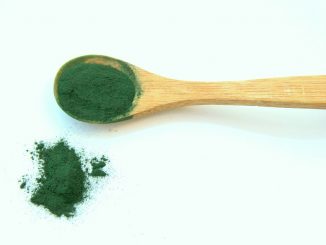
People often talk about the benefits of certain foods (for example, forest fruits are rich in antioxidants and fish is a generous source of omega-3), but there are still a lot of magical nutrients that you might not know about. We have put together a list of foods that can help relieve certain symptoms such as bloating, menstrual cramps, insomnia and many more.
Menstrual cramps
Recommended foods: a low-fat, herbal and fiber-rich diet is required. You should consume whole wheat products, vegetables, legumes, nuts, seeds and fruits.
How it works: According to nutrition research, prostaglandins (a group of hormone-like compounds that cause pain and inflammation) influence the level of estrogen responsible for menstrual cramps. A fiber-rich, low-fat, plant-based diet lowers estrogen levels and prostaglandin production, thus lowering the level of pain you experience.
Digestive problems
Recommended foods: yogurt, beans, chia seeds, papaya, oats, water, mint tea, cumin seeds, apples and pears.
How it works: A combination of probiotics is needed to regulate the digestive system, and fibers can help eliminate stagnant fluids in the body. Probiotic bacteria from yogurt helps regulate digestion, while beans, peas, lentils and chia seeds help eliminate “debris”. Also, peppermint and cumin work perfectly as an antispasmodic that helps relax the intestinal muscles. Foods rich in fiber such as apples and pears help regulate the digestive tract, and that’s because foods that contain a lot of water (pears, melons, tomatoes, grapes) help to improve various digestive issues.
Insomnia
Recommended foods: pineapple, oranges and bananas.
How it works: In a study published in 2013 in the Journal of Pineal Research, it has been shown that consuming pineapples, oranges or bananas significantly increases the body’s melatonin concentration, a hormone that helps control the sleep cycle. It is recommended to consume the fruits two hours before going to sleep.
Stress and anxiety
Recommended foods: asparagus, fish, blueberries and healthy carbohydrates.
How it works: Targeting basic nutrients can be an effective strategy to combat stress. According to a study done by German researchers, the vitamin C in blueberries helps to lower stress and cortisol levels after a stressful situation, in which subjects were asked to hold a public lecture or solve a math problem. Asparagus is rich in folic acid, also identified as the main nutrient that improves mood. Let’s also not forget the fact that omega-3 fatty acids help maintain cortisol and adrenaline levels within normal range.
Headaches
Recommended foods: coffee, black tea, spinach, herring and trout.
How it works: One of the main ingredients found in many medicines against headaches is caffeine. This is because it helps the body stay energetic and eliminate the pain – which is why a cup of coffee or black tea can relieve your headache. If you can not consume these drinks, you can also try eating spinach, which contains vitamin B and can help prevent migraines.
Bloating
Recommended foods: asparagus, coffee, green tea, lemon, cucumber, avocado, banana and papaya.
How it works: Tea and coffee combat water retention, bananas and avocados are rich in potassium which helps balance the organism, and lemon is a great natural detoxifier. Even green vegetables can work wonders against bloating, including asparagus, which contains probiotic fibers required to absorb nutrients and prevent bloating.



Leave a Reply